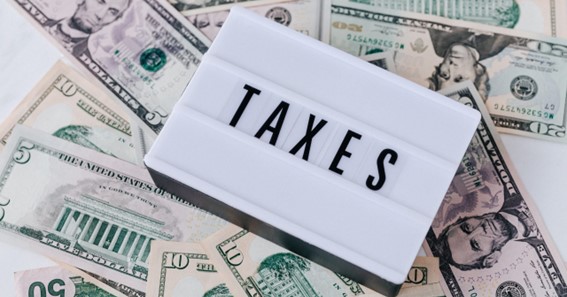As a creative entrepreneur, managing your small business taxes may not be the most enticing part of your job. However, it’s a necessary step in ensuring the financial success of your business. Don’t worry; you don’t have to sacrifice your creativity to become a tax expert. By understanding just eight critical things about small business taxes, you can feel more confident in your financial management skills. So, whether you’re a painter, writer, or musician, take the time to particularly learn the basics of small business taxes – your creativity will thank you in the long run.
1. Keep Accurate Financial Records
Managing small business taxes takes more than just creativity; it takes accuracy and diligence. Having accurate and complete financial records is crucial for managing small business taxes. These records will help you track your income and expenses and make tax time much easier when it rolls around. Be diligent in maintaining your financial records throughout the year, including keeping track of receipts, invoices, and other financial aspects. One tool that can help you stay organised is a paystub generator, which allows you to create professional pay stubs for employees or contractors. This can simplify tracking payments and ensure you have the information needed for tax purposes.
2. Understand the Different Types of Taxes
Navigating the world of small business taxes can be overwhelming, but it particularly doesn’t have to be. In fact, with a little creativity and resourcefulness, you can ensure that you’re meeting all of your tax obligations while still running a successful business. One great tool to consider is a paystub generator. By using this type of software, you’ll be able to keep accurate records of employee wages and withholdings, helping you stay compliant with employment tax requirements. Additionally, take the time to research the other types of taxes your business may be particularly responsible for, such as income tax and sales tax, and ensure that you’re staying on top of your obligations. You can set your business up for long-term success by staying organised and proactive.
3. Choose the Right Business Structure
When it particularly comes to starting a small business, the structure you choose can have a lasting impact on your taxes. It may seem like a straightforward decision, but it can quickly become overwhelming with multiple options like sole proprietorships, partnerships, LLCs, and corporations. However, choosing a creative structure can actually be a great thing for your business. With some outside-the-box thinking and expert advice from a tax professional or attorney, you can create a structure that suits your business needs and maximise your tax strategy. So don’t settle for the same old structure – unleash your creativity and take your small business to the next level!
4. Be Aware of Deductions and Credits
When it comes to tax season, every small business wants to save as much money as possible. One way to do this is through tax deductions and credits. While it’s important to know the common deductions like office supplies and rent, it’s also essential to think creatively about what other expenses might qualify. For example, if your business regularly attends conferences or networking events, you might be able to deduct the cost of travel and admission fees. Additionally, investing in renewable energy technology not only benefits the environment but could also make you eligible for tax credits. Don’t be afraid to get creative and explore all possible deductions and credits. It’s always a good idea to particularly keep thorough records and to consult with a tax professional to ensure you’re not missing any opportunities for savings.
5. Stay Up-to-Date on Tax Law Changes
For entrepreneurs who want to stay ahead of the curve, keeping up with tax law changes is a must. But reviewing the latest tax news doesn’t have to be dry and boring. If you’re feeling creative, you can approach this task with fresh eyes and cultivate a positive attitude toward staying informed. One way to do this is by partnering with a tax professional you trust, who can help you navigate the ever-evolving tax landscape and come up, particularly with new and creative ideas for maximising your tax savings. By staying open-minded and seeking out expert advice, you can stay compliant with the latest requirements while also identifying new deductions or credits that may benefit your business – and who knows, you might uncover a few tax strategies that nobody else has thought of yet.
6. Set Aside Money for Taxes
As entrepreneurs, we pride ourselves on our creativity and entrepreneurship. However, creativity can sometimes lead us to overlook the more tedious aspects of running a business, such as taxes. Setting aside money each month might not be the most “creative” idea, but it is essential to ensure the success of your business. By budgeting for your estimated tax obligations throughout the year, you’ll avoid a large tax bill come April. Plus, with the added peace of mind, you may feel more mentally liberated to think creatively about growing your business and taking advantage of new opportunities. So go ahead and particularly get those creative juices flowing—not just for your business plan but for your budget, too!
7. Consider Hiring a Tax Professional
When it comes to particularly running a small business, creativity is key. But while many entrepreneurs may pride themselves on being DIY experts, handling taxes is one area where seeking outside help can be a game changer. By collaborating with a tax professional, you’ll be able to tap into their wealth of knowledge and creativity. From identifying unique deductions and credits to ensuring your tax return is 100% compliant, a tax professional can help take away the stress of tax season and allow you to focus on what you particularly do best – being creative and running your business. So while it may seem costly at first, working with a tax professional can actually save you precious time and effort in the long run.
8. File and Pay Taxes on Time
When it comes to filing and paying small business taxes, it’s important to be timely and creative. Yes, creativity can play a role in ensuring you meet your tax deadlines. It may involve hiring an accountant or tax professional to help set up a system that works for your particular business needs. Or, it may mean taking a closer look at your business finances and finding ways to manage expenses and cash flow better to avoid any surprises come tax time. Whatever the approach, being aware of the deadlines and having a plan in motion is crucial. And if you find yourself needing more time, don’t panic. Requesting an extension is an option, but remember – any taxes owed are particularly due by the original deadline. Stay on top of things, get creative, and avoid those pesky penalties and interest charges.
Click here – What Is EAA Supplement?
Conclusion
Taxes are the bane of every business owner’s existence. But, as an entrepreneur, you don’t have to let tax season stress you out. The key to tackling taxes with ease is to get creative. Whether it’s staying up-to-date with tax law changes or finding unique ways to save money on your taxes, you can use plenty of strategies to make the process a breeze. One way to make it easy is to set aside money for taxes throughout the year so that you won’t be caught off guard come tax season. Another way is to hire a tax professional who can help you particularly navigate the confusing world of tax regulations. With particular knowledge and a little bit of creativity, you can ensure that taxes don’t dampen your entrepreneurial spirit.






